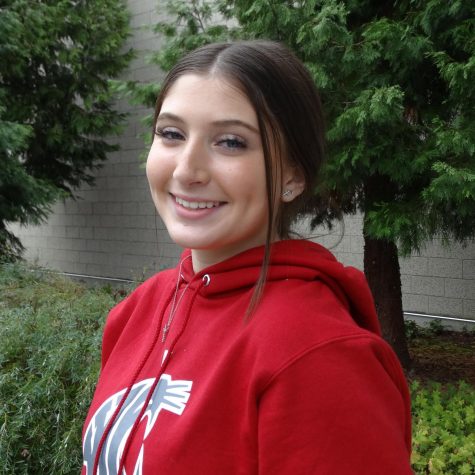Politics in High school
October 12, 2021
Now more than ever, politics is all around us. Politics has affected our relationships, the way we interact with others, and our work and school environment. Beginning a new class this semester, Civics, with Issaquah High School teacher Caitlin Lambert at Issaquah High, I wanted to hear other kids and teachers’ thoughts about what it is like sharing opinions nowadays. In this generation a lot more recently, it seems difficult to share an opinion, even when you are asked to and on each side of the political spectrum.
“Issaquah is very divided,” Lambert says. She explains that there are all kinds of people on both sides, very upfront about opinions, and some laid back. One of my old history teachers, Michaela Nelson, also agrees with this. They also both agree with the fact that voting is indeed important. Nelson states, “Representation of you and your community at work is by voting and getting things done.” For example, Nelson shares that in her first election she voted in, the 2012 presidential election, she voted for Obama because she thought healthcare was important. Lambert at the time, however, thought our military and protection was most important because it was after the tragic 9/11 attack on the United States.
My generation seems to focus on social issues. Getting information from social media platforms like Twitter, Instagram, and even Snapchat as news sources can be deceiving because it can be more opinions instead of facts. Talking about social justice, accepting anyone and everyone, inclusivity and even international issues that others want to vocalize their opinion on. Senior Kyra O’Keefe says she gets her news from “BBC, snapchat and my parents.” She, too, sees how accepting and how much this generation wants all to feel welcome in every community including being on social media. Regarding sharing her opinion in Civics and school in general, O’Keefe says, “I don’t feel comfortable really in any situation anymore. I always feel like I’m going to be judged no matter what I say.” She also went on to say, “Social media has showed us fake news and has formed uneducated opinions which is something that our generation needs to realize because a lot of people are now blind to the fake in fake news.” While someone could have a fact, another could have read an article with false facts going against that.
Most students do not feel comfortable sharing their opinion at school regardless that they all see this school as being very split between liberal and conservative. Many said they get their news from at least one or two social media apps like Instagram and Twitter. Junior, Magnus Bergstrom states, “The more time we kids spend on social media, the more it impacts our opinions and how far we take it”.However, Bergstrom said he does feel comfortable sharing his opinion and said “Unfortunately in our generation, kids are afraid to share their opinion, I am not because everyone is entitled to their own opinion and politics is about understanding sides and beliefs.” He also explained to me how there is peer pressure in class when a conversation between students involves politics. Having friends agree with one another maybe so that a kid does not feel left out or that they will get judged for disagreeing with what they are saying.
Nelson says she sees how important social media, climate change, and finding a voice in my generation is. She went on to add that she watched after the Black Lives Matter movement took off and how social justice is really important to our generation. She also thinks we need to focus on figuring out our military and how us as a generation need to work with each other and not just our parties. Nelson says, “Inclusiveness of party groups needs to be something on your generation’s agenda.” Ms. Nelson and Ms. Lambert both said how crucial voting is, especially in today’s times, but how will kids decide to vote if this raging era of social media and fake news continues? These teachers did not have the kind of social media that it is today, which makes it harder for us kids to decipher who and who not to vote for. Hours of scrolling on Twitter, reels about what this candidate has done and why the other is a bad person, all seeming to be convincing you to the extremes, one way or the other. How will we, as a generation of people, make ourselves feel comfortable with our own opinions again? Perhaps a change in social media use? Or maybe, a change of mindset will bring about change.


